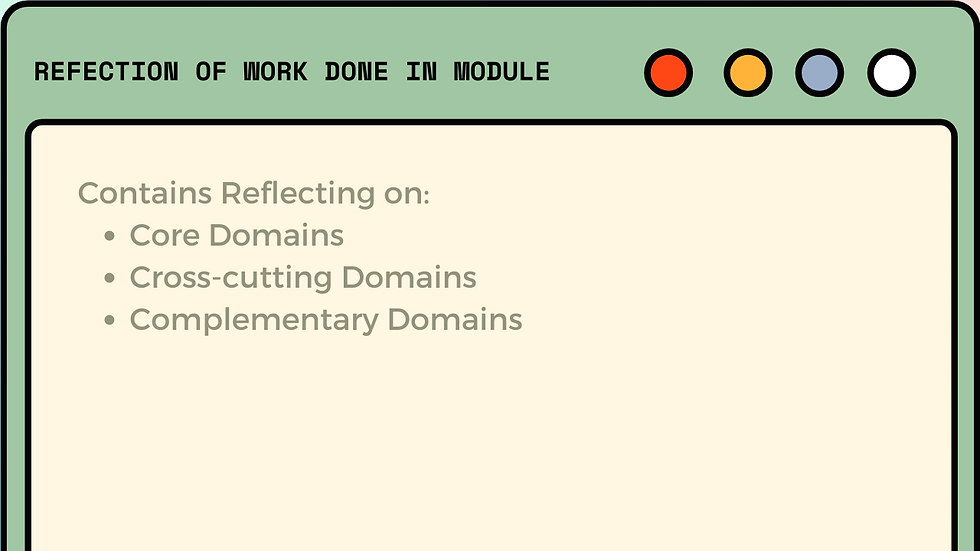Week 1 reflections
- 2428616
- Sep 12, 2022
- 3 min read
Updated: Nov 2, 2022
Has my idea of health systems science changed after this session? If so, how?
My idea has not changed, but I have learned what health system sciences is. It is made up of three building blocks, health systems science, public health and bioethics, and health law. Health system sciences involve studying components such as the ones listed above to improve the health of the patients and the community at large. Health system sciences is the third pillar of health science education after Basic sciences and Clinical sciences. “Health system sciences compliments and synergizes with basic and clinical sciences by addressing the fact that the quality of healthcare is determined by the health system that supports it. This includes the fundamental building blocks such as Governance, Finance, Service delivery, Human resources, Health Information Systems, and Medicines and Technologies.”
Health system sciences building blocks are service delivery, health workforce (such as doctors and nurses), health information systems, access to essential medicines, financing (how much is invested into hospitals and how much are people being paid), Leadership, and Governance. The outcomes of improving these building blocks mean that there will be improved health (level and equity), responsiveness, social and financial risk protection, and improved efficiency.
“Ultimately, Health System Sciences is about improving health outcomes for the population by improving the different yet interrelated aspects of the health systems that work together to provide quality health care.”
How has my definition of health changed after this session?
Yes, I defined health as eating healthy food, exercising, and not staying in a stressful environment. But then I see now that health is subjective and should be adapted to every person. People with chronic illnesses, disabilities, etc...should be accommodated in the definition. Health is something that one works on and improves not a state of being, it is not measurable.
How do the initial steps required for academic writing differ from the steps for creative and narrative writing? What are my weaknesses and strengths for this kind of writing? What skills do I still need to work on to become better?
in the initial steps, it is important to check that the research that you have found is reliable and that it can be used. A lot of what you state must be factual and backed up by evidence, so you need to plan out your argument. But because you need evidence you also must have the skill of paraphrasing and citing and referencing properly to not plagiarise someone else’s work. What I need to work on is the flow of my essay, but my strength is critical thinking and connecting things as well as evidence to support my point of view. What skill do I need to work on, I would say communication.
References:
Skochelak, S.E., Hawkins, R.E., Lawson, L.E., Starr, S.R., Borkan, J. and Gonzalo, J.D., 2016. Health Systems Science. Elsevier Health Sciences.
Amzat, J. and Razum, O., 2017. Towards a sociology of health discourse in Africa. Springer. Read: pages 1 – 5.
Bircher, J., 2005. Towards a dynamic definition of health and disease. Medicine, Health Care and Philosophy, 8, 335–341.
Huber, M., Knottnerus, J.A., Green, L., van der Horst, H., Jadad, A.R., Kromhout, D., Leonard, B., Lorig, K., Loureiro, M.I., van der Meer, J.W. and Schnabel, P., 2011. How should we define health?.
Jadad, A.R. and O'Grady, L., 2008. How should health be defined?. BMJ: British Medical Journal (Online), 337.
WHO (1946). Preamble to the Constitution of the World Health Organization as adopted by the International Health Conference, New York, 19–22 June, 1946.


Comments